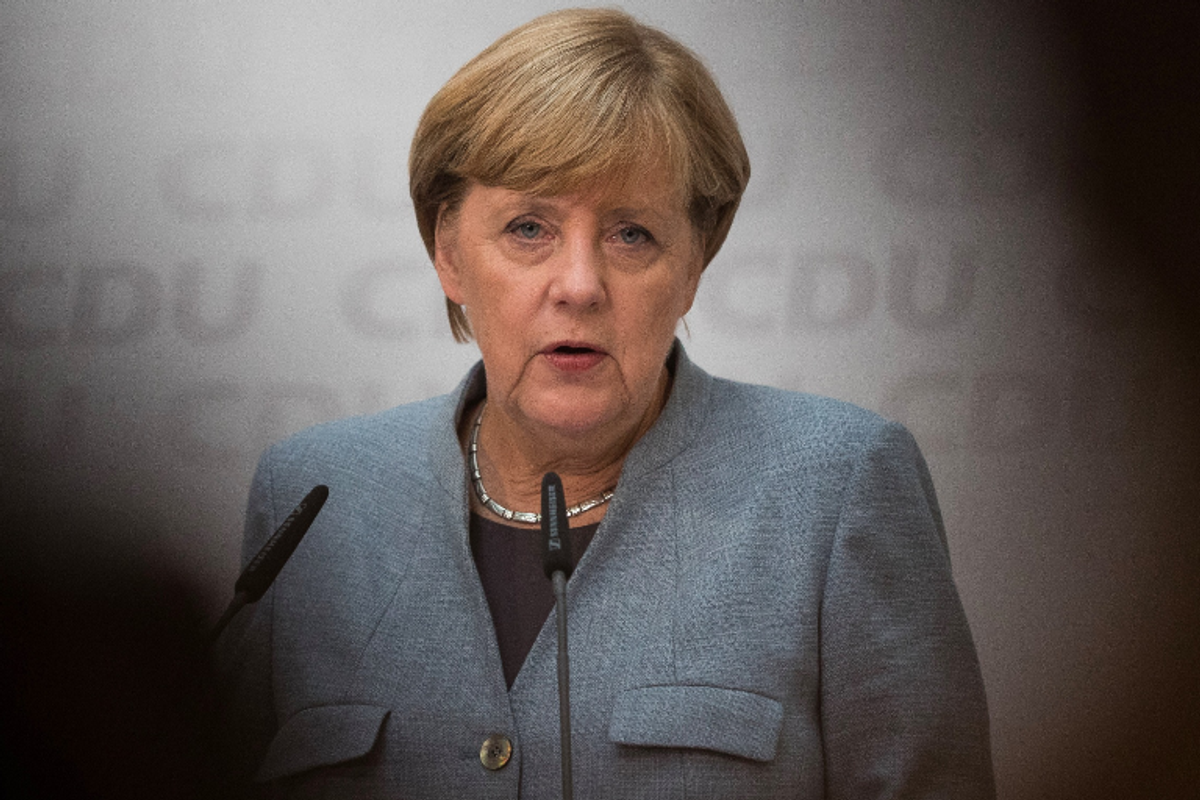Chancellor Angela Merkel of Germany succeeded in her reelection bid in September of this year, but her party’s ability to govern at all now stands in question, which could spell the weakening of Germany’s regional influence. Merkel’s party did not win enough seats to form a government, so is negotiating with the center-left Social Democrats (SPD) – a last-ditch effort to forestall new elections, after talks with other major parties broke down last week.
The past decades have seen German politics operating as the face of soft power, promoting multilateralism and increasing European integration. However, the advent of voices and policy stances more vocal and extreme than any in recent memory might offer the country its first genuine moment of political introspection. In German newspaper Die Zeit, political commentators such as Ludwig Greven view the present circumstances as a potential opportunity, rather than a threat. Merkel’s time in office has been characterized by dominance of her conservative party, with no major inroads for parties promoting alternate platforms. A governing coalition that overcomes the current obstacles could prove more in touch with its electorate, rejuvenated through plurality, and stronger overall.
Throughout the span of her previous three terms, Merkel’s party, the CDU, governed through a coalition including its long-time partner, the SPD. Even as the more progressive SPD attempted to pull its conservative partner further left, both parties have come to represent the centrist, traditional, perhaps even predictable method of operation.
Even while they sparred with faction parties including The Greens (Die Grünen), the Free Democrats (FDP), and the Left (Die Linke), compromise always won out. Many of these competitors shared some strands of the CDU’s policies, and the Bundestag Parliament in Berlin rarely saw the kind of partisan opposition or ideological incompatibility that characterizes U.S. politics. Until now, when the September election brought the first extreme right-wing, nationalist party since World War II (the AfD – Alternative for Germany) into the ranks of representation in the capital.
The refugee crisis along with Merkel’s policy of acceptance and resettlement for asylum-seekers unleashed the deepest hard-line opposition she has ever confronted. The AfD party essentially defined itself through opposition to this policy alone – capitalizing on mistrust of thousands of arriving foreigners, and concern for the future wellbeing of both Germany’s economy and cultural identity. The AfD infiltration of the Bundestag evidenced that the CDU no longer holds the electoral majority or approval ratings to keep government decisions running on its own schedule alone. In September, the CDU won only thirty percent of the vote.
Now, opposition parties are bringing non-negotiable demands, and the breakdown of coalition talks demonstrates they are emboldened to challenge Merkel’s policies. When the head of the FDP officially abandoned talks on Monday, he stated the four potential partners share “no common vision for our country and no common basis of trust.”
Now, a degree of public hostility focuses on the SPD – the CDU’s long-time partners, who initially refused to come to the coalition table after their electoral losses in September. Rather than reform the same governing partnership with Merkel’s CDU, SPD leader Martin Schulz declared the party would remain in the opposition and focus on rebuilding. In the opposition, it hopes to become “younger and more female.”
But with the CDU struggling to find new coalition partners, the SPD met backlash for its “party first, country second” position. Schulz finally agreed on Friday to at least meet with the CDU this week, opening the door for a potential renewal of the CDU – SPD partnership, even if that partnership takes on a much different form reflecting the changed demographics of the Bundestag makeup.
The September elections made it clear that many Germans wanted a change. Now, the question is how much change, and at what cost. After three terms of what has been called Merkel’s pragmatic, unexperimental governing style, perhaps voters feel the time has come for a wider spectrum of policy choices. If such a demand only waited on an issue important enough to stir passions, fuel political hard lines, and elevate a party like the AfD, essentially defined by this issue alone – immigration and the refugee crisis were the keys.
Yet this expanded dialogue comes at a steep, dangerous price. German newspaper Die Zeit ran an article this week titled “Die Lehren Aus Weimer” (The Lessons From Weimar), recalling the 1930 political breakdown of a multi-party system in the Weimar Republic, and calling on today’s politicians to take creative and perhaps drastic actions to avoid similar pitfalls. The entrance of the AfD into Parliament, a party that uses nationalistic rhetoric to argue for aggressive border control and the expulsion of refugees, understandably sent shock waves through both the political establishment and voters across the country. Merkel’s CDU still holds the largest majority, but the AfD now represents a legitimized voice of dissent that must be included in government decisions.
However, not all have viewed the AfD’s rise as a setback for German politics. Henrik Enderlein of the Hertie School of Governance in Berlin commented this could simply be “another step in the long learning of democracy of Germany since World War II, going from a very stable proportional system to something more messy.” For the first time, with the stakes appearing higher than ever and dangerous new players added to the mix, the debate concerning not only German policy, but German identity, stands wide open and unfettered. Ludwig Greven writes in Die Zeit that “democracy is allowed to be difficult.” Modern Germany is an experienced democracy, and perhaps its current difficulty stems from “not too little, but too much stability” in recent years.
Angela Merkel has made clear her willingness to both continue negotiations, and if necessary, stand for her party again in new elections. With the SPD considering a return to the negotiating table, and mounting public pressure against the FDP for abandoning coalition talks on Monday, new elections remain only a distant possibility.
Attitudes within the country seem to yearn for reconciliation and progress, rather than absolutism and resistance. These should be promising signs that German democracy is both growing and thriving, even while it suffers some growing pains. If Merkel succeeds in bringing together a governing coalition, the result could counter the xenophobia embodied by the AfD, through a German government more inclusive and diverse than any in recent memory.













